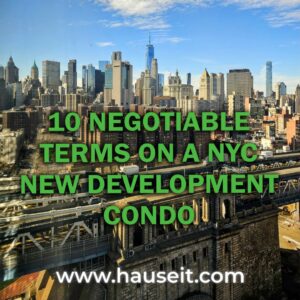In the event Sponsor is unable to convey title to the Unit on or before October 1st, 2019 (the “Outside Closing Date”), provided that such inability to convey is solely the fault of Sponsor, then, if Purchaser is not otherwise in default under the Agreement, Purchaser may terminate this Agreement by written notice of termination to Sponsor.
If Purchaser so elects to terminate this Agreement, Sponsor shall within fifteen (15) days after receipt of notice of termination from Purchaser, return to Purchaser all sums deposited by Purchaser hereunder, together with interest earned thereon, if any, and upon making such payment, this Agreement shall be terminated and neither party hereto shall have any further rights, obligations or liabilities to or against the other party under this Agreement or the Plan.
The foregoing option must be exercised by notice of Purchaser in writing to Sponsor as provided for in the agreement and any riders thereto, by no later than five (5) days after the Outside Closing Date otherwise Purchaser shall be deemed to have waived this option.





